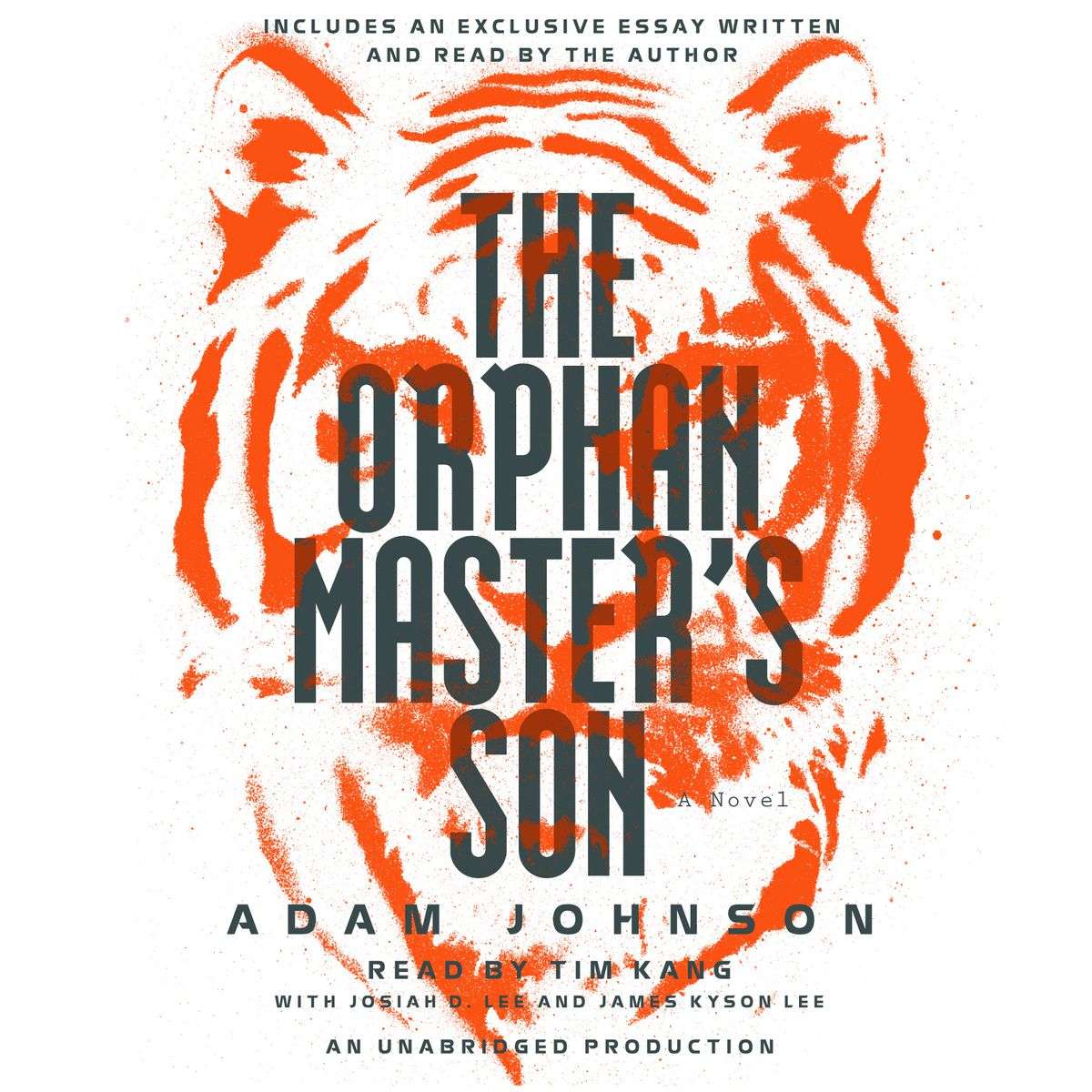The Orphan Master’s Son, by Adam Johnson
Winner of the 2013 Pulitzer Prize for Fiction, The Orphan Master’s Son tells the compelling tale of one John Doe struggling to survive in the midst of what is perhaps the world’s most rigid totalitarian regime: North Korea.
The Orphan Master’s Son follows the life of Pak Jun Do, whose absent mother was a singer and whose father runs the Long Tomorrows orphan camp; although Jun Do is not an orphan, he was treated no differently than the other boys (this being the stringent “no favoritism” that his father showed him – which he assumed was a great honor). Jun Do is not even the boy’s true name, but the name of one of the 114 Grand Martyrs of the Revolution, a group from which all orphan names are assigned.
Already we learn that orphans are not children whose parents have died, but children who had been abandoned by parents who simply could not care for them anymore, or who could not take them along to where they were going, or did not want to subject them to the only future they could envision for them. These children were then “adopted” by corporations or military units for extremely hazardous jobs that needed to be performed by highly expendable workers. This is the reality of life in North Korea. It is just one of the realities that we are awakened to in The Orphan Master’s Son.
Author Johnson freely acknowledges that his book is total fiction. Other than Kim Jong-Il, who makes a number of appearances in the book, none of the characters are real; even the Dear Leader’s words and actions are completely imagined. But with the vacuum of literary work coming from North Korea, Johnson felt compelled to write about the society that had gripped his imagination since reading Kang Chol-Hwan’s harrowing 2000 memoir, The Aquariums of Pyongyang. As he told the San Francisco Chronicle in an interview from April 20, 2013:
“If you express your own views, which is the duty of an artist, you go to the gulag. And that also means that no North Korean has read a book, as we think of a book – as a work of art whose job it is to illuminate the human experience – in three generations. They don’t even know what a book is there. So that’s one of the reasons I wrote my book, because it was this huge human mystery, and fiction hasn’t fleshed it out because there is no fiction.”
One of the hardest things for Western readers to understand about North Korea is that individual citizens do not see themselves – are not allowed to see themselves – as the main character in their own lives. There is only one main character in the drama that is North Korea, and that is the Dear Leader, formerly Kim Jong-Il (who died in December 2011), and now his son, Kim Jong-Un. Everyone else – EVERYONE else – is a secondary, supporting, expendable character. Not only is that all they are expected to be, trying to be anything else is punishable to the extreme. As one character in the book explains:
Where we are from, stories are factual. If a farmer is declared a music virtuoso by the state, everyone had better start calling him maestro. And secretly, he’d be wise to start practicing the piano. For us, the story is more important than the person. If a man and his story are in conflict, it is the man who must change.
To have an independent, even artistic viewpoint is to be an enemy of the state. And to want something that hasn’t already been given to you is a death sentence. Or worse.
“Let me tell you about the Dear Leader,” she said. “When he wants you to lose more, he gives you more to lose.”
“His grudge was with me, not you. What reason could he have to-“
“There,” she said. “There is the proof that you don’t understand any of this. The answer is that the Dear Leader doesn’t need reasons.”
It is against this backdrop that Jun Do’s story unfolds. The tale that Johnson weaves is not an ideological diatribe; it does not even pass judgment although the brutality, abuse and fear speak for themselves. Instead, we are given a deeply personal account of Jun Do as he moves from being a young man who does unspeakable things simply because he is told to do so, to a man who has unspeakable things done to him, but who also starts to listen and think about what is occurring around and within him. It’s not that he sees himself as an instrument of change – Jun Do is no rebel – but he learns how to harbor his own thoughts and use the training that has come to him through years of forced brutality to survive an inexplicable experience that ends up changing him into an entirely different person – and teaches him the value of love and the honor that comes with sacrifice.
In the grand tradition of the Pulitzer Prize for Fiction, and in the footsteps of The Good Earth, The Grapes of Wrath, To Kill a Mockingbird, and Beloved, Alan Johnson has given us a story that is deeply rooted in time and place, defining a people at their point in history. And in doing so, in allowing us to glimpse something that is so totally removed from our own experience and yet holds a recognizable honesty, he expands our knowledge of not only that time and place, but also that which makes all of us, regardless of that which controls us and that which defines us, human. The Orphan Master’s Son is indeed worthy of its prize.
—Sharon Browning

